On social networks, there are currently a series of parodies of songs about Minh Tue. These parodies seriously violate the law on music copyright protection.
Parody music about "Minh Tue monk" floods the internet
In recent days, after a long period of silence, the keyword "Thich Minh Tue" or "monk Minh Tue" has continued to cause a stir on many forums. In particular, after the statements of CEO Nguyen Phuong Hang, many YouTubers flocked to the place where lay Buddhist Minh Tue is practicing in seclusion to follow his every move and reaction. Along with that, on online music platforms, a series of parody songs about lay Buddhist Minh Tue have also appeared.
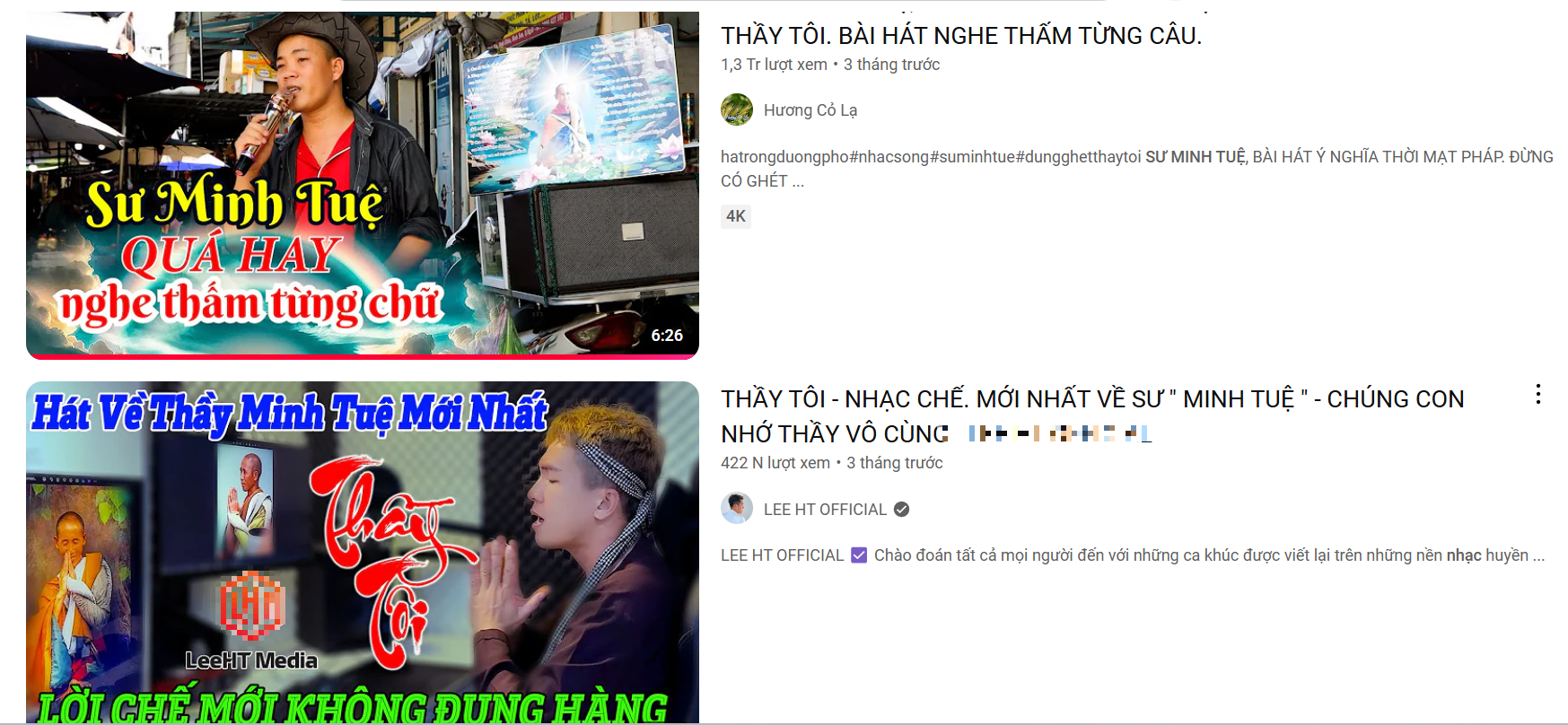
Parodies of Minh Tue are all over YouTube. Screenshot.
Just go to YouTube and search for the keyword "music parody of Master Minh Tue" and you will get thousands of results. Among them, there are many parody songs that receive a lot of listens and shares such as: "Thuong me thay" (parody of the song Nguoi den tu Trieu Chau ), "Hat ve su Minh Tue" (parody of the song "Duc con toi loi"), "Thây ngay" (parody of the song "Mua xuan nay anh se nuoi em"), "Hat ve su Minh Tue" (parody of the song "Giong ca di qua"), "Don't hate my teacher" (parody of the song "Con ut"), "Su Minh Tue is the living Buddha of my life" (parody of the song "Duoc con toi loi")...
The common feature of these parodies is that the lyrics are rewritten based on existing melodies. The content of the lyrics is heavily narrative, mostly praising and admiring the vows and ascetic practice of Minh Tue. Many parodies even honor Minh Tue as a "living Buddha" and vow to follow in his footsteps. And although many parodies have quite disjointed, clumsy, and dry lyrics... sometimes a bit "naive", many listeners still leave comments expressing their emotions.
In addition to the floating parodies, there are also many self-composed songs, which have been invested in and filmed with quite beautiful videos . Among them, the traditional folk song "Huong sen nguoc gio" by artists Chau Thanh and Ngoc Huyen Chau has reached 1.2 million listens after nearly 3 months of online release. Or the traditional folk song "Coc nho que ngheo" by artists Chau Thanh and Chau Ngoc Tien also reached 3.2 million listens after 3 months of release. There is a YouTube channel that even created a category "Collection of songs about monk Thich Minh Tue".
Talking to Dan Viet , musician Giang Son also expressed that the practice of parodying song lyrics is quite common nowadays. This also contributes to making the original song more famous, but with offensive parodies, it harms the song. However, according to copyright law, parodying lyrics is an act of copyright infringement.
"If we truly respect Minh Tue, we should compose a separate song so that the song can last long and be legal. When the Intellectual Property Law (IP Law) is increasingly strict, violations will be handled immediately and all parody songs like this will be lost," musician Giang Son emphasized.
Serious violation of copyright laws
Cultural researcher Ngo Huong Giang shared with Dan Viet : "The act of remixing song lyrics without the permission of the author or the person legally authorized for the author is considered an act of violating the Intellectual Property Law (IP Law). From the perspective of public opinion, the act of remixing or combining music about someone also leaves bad consequences for society, creating a negative precedent in the future.
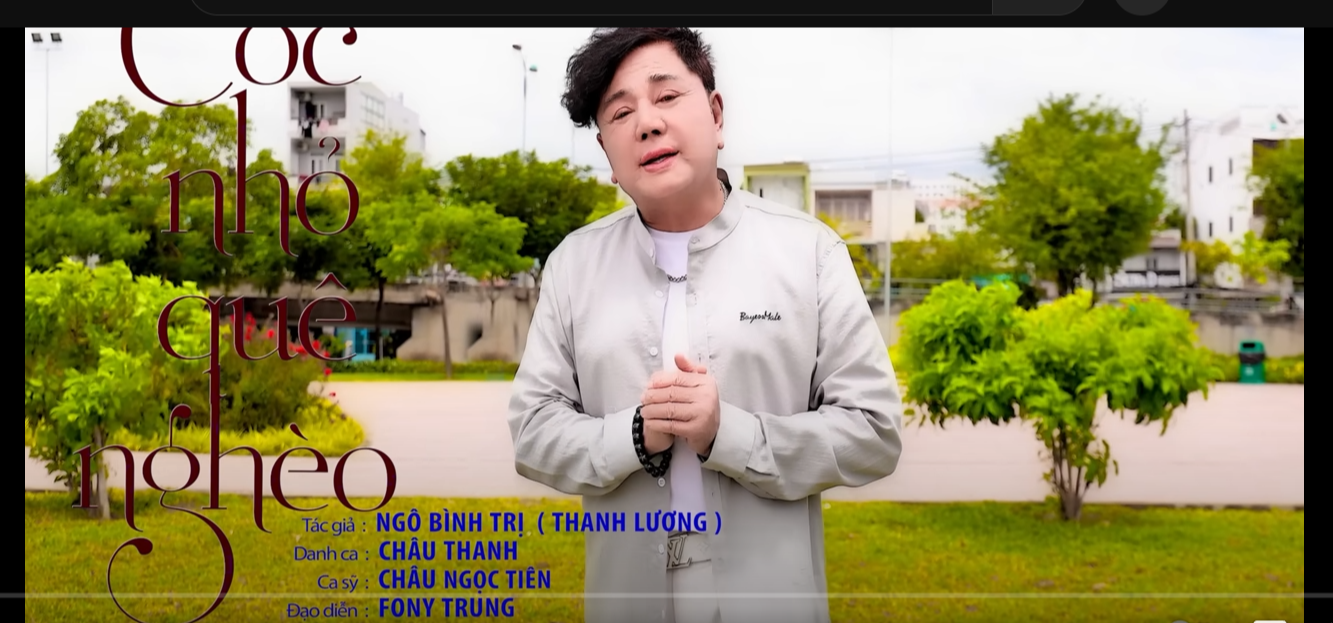
The song about lay Buddhist Minh Tue by artists Chau Thanh and Chau Ngoc Tien reached 3.2 million views on YouTube. Screenshot.
Minh Tue may not have heard those parodies, and even if he did, the chants in the parodies would have had a negative impact on his psychology and practice.
We are living and working in Vietnam - a socialist state of law, the rule of law is still paramount. Admiration or support for the path of practice of Minh Tue should stop at enlightenment.
Enlightenment about the serious attitude of lay people in practice, enlightenment about their own bad habits, to correct and discipline themselves to live a good life and follow the religion. From there, contribute to spreading positive human values to society. The noble meaning of Buddhism is enlightenment to make society become united, people love and respect each other."
According to cultural researcher Ngo Huong Giang, if people truly love, admire, and support the path of practice of lay Buddhist Minh Tue, they should leave him alone, away from the disturbances and noise of the world.
"Admiring someone is first of all to give them peace. With lay Buddhist Minh Tue, our admiration for him is also in his attitude of self-discipline, correcting greed, anger and ignorance within himself if he truly loves and respects him," Mr. Ngo Huong Giang expressed.
Sharing with Dan Viet , Lawyer Phan Vu Tuan - Phan Vu Tuan - Lawyer Phan Tuan Vu - Vice President of the Ho Chi Minh City Intellectual Property Association, Head of Phan Law Vietnam Law Office said that according to the Intellectual Property Law (IP Law), the act of "editing" song lyrics is considered an act of infringing upon the property rights and personal rights of the author and copyright owner as prescribed in Clause 1, Clause 2, Article 28 of the IP Law.
"The song is one of the author's intellectual properties. The author has spent a lot of effort, passion and intelligence to research and compose a musical work. Therefore, the work is allowed by the State to register for copyright protection.
"Protected copyright includes personal rights and property rights. Creating song lyrics based on published musical works is using the property rights of the copyright owner," emphasized Lawyer Phan Tuan Vu.
According to Lawyer Phan Tuan Vu, Clause 4, Article 19 of the Law on Intellectual Property stipulates that one of the author's personal rights is "To protect the integrity of the work, not allowing others to distort it; not allowing others to modify or cut the work in any form that harms the author's honor and reputation.
Thus, the act of "editing" song lyrics can be considered an act of distorting or modifying or cutting a work - an infringement of the right to protect the integrity of the work. Therefore, a person who distorts a work or modifies or cuts a work in any way that harms the honor and reputation of the author is determined to have violated the author's personal rights according to the provisions of current law.
In addition, the act of "editing" song lyrics can also be considered an act of infringement of the property rights of the author or copyright owner. According to Article 20 of the Law on Intellectual Property, the right to create derivative works is the exclusive right of the author or copyright owner or is allowed to be performed by another organization or individual. "Editing"/rewriting song lyrics without the consent of the author or copyright owner is determined to be an act of infringement of the property rights of the author or copyright owner.
Source: https://danviet.vn/nhac-che-ve-su-minh-tue-vi-pham-nghiem-trong-phap-luat-ve-ban-quyen-am-nhac-20241025111212326.htm


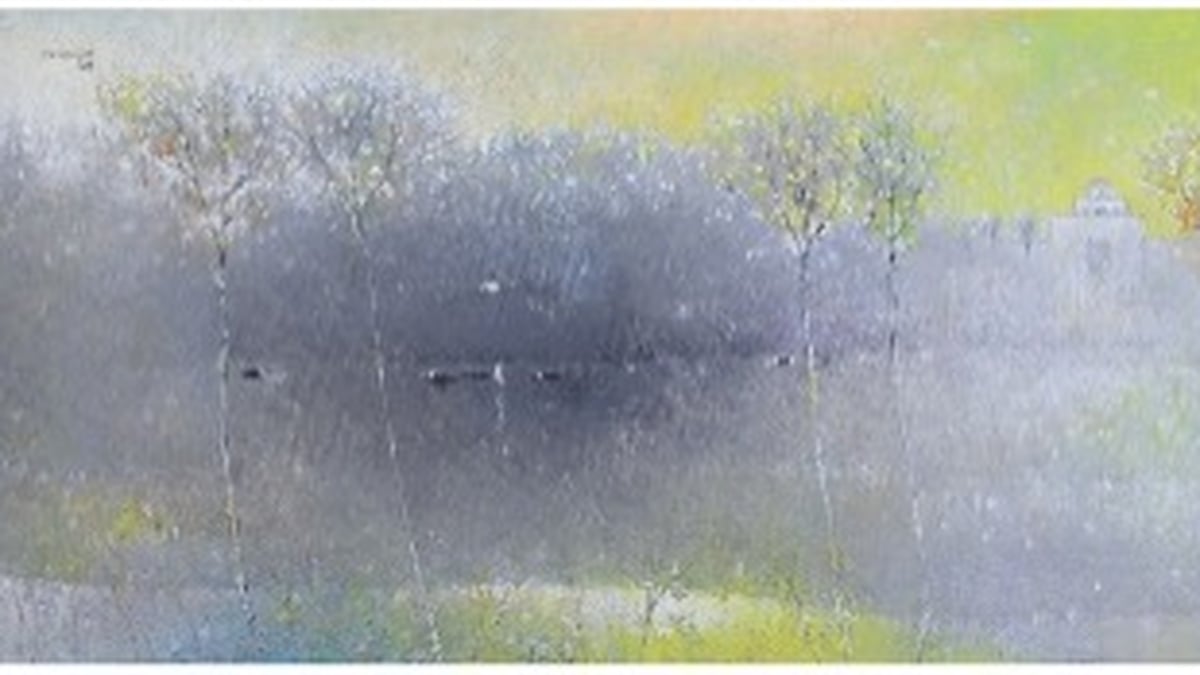

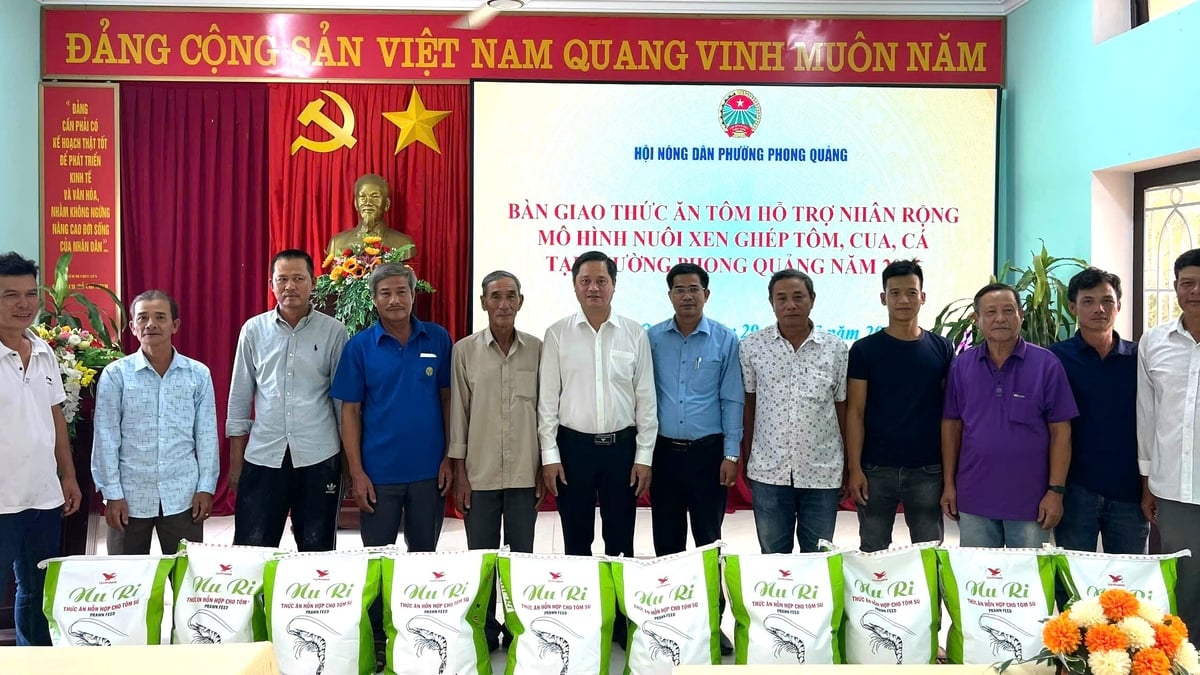


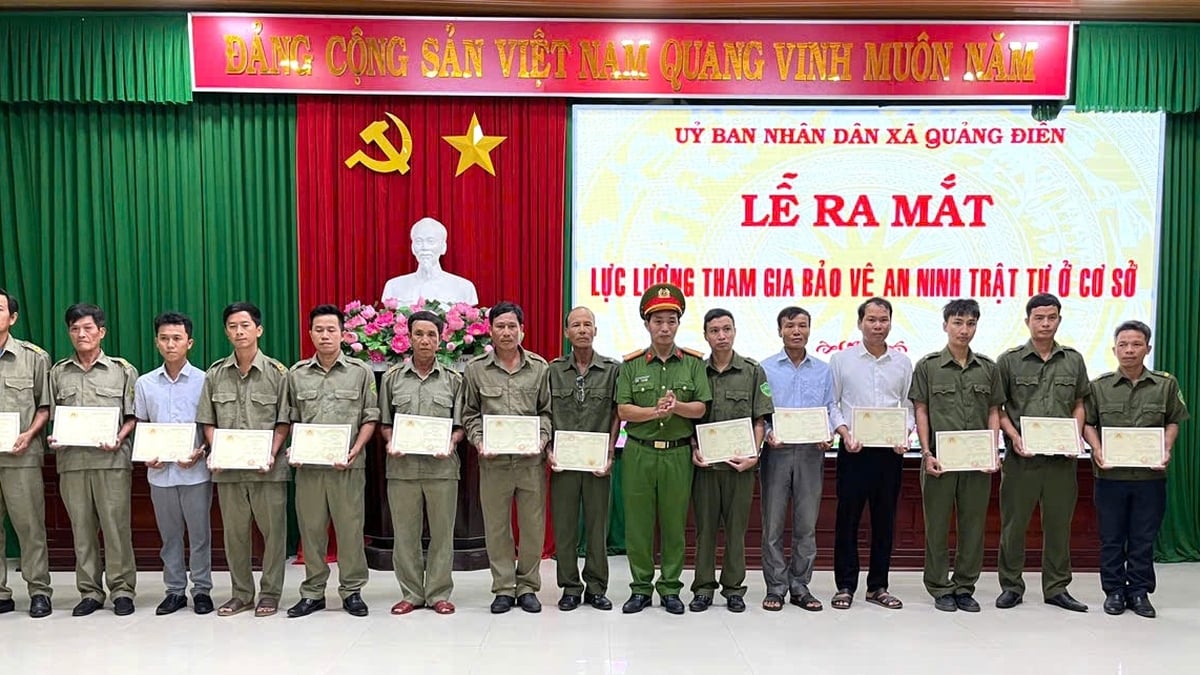
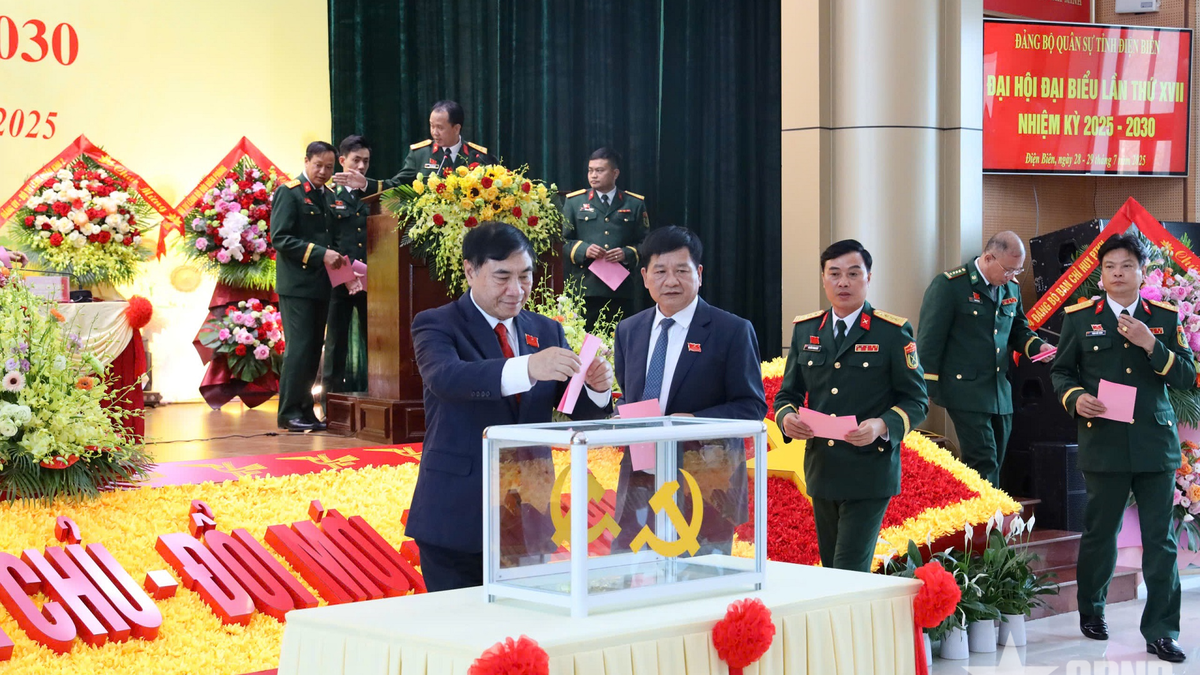
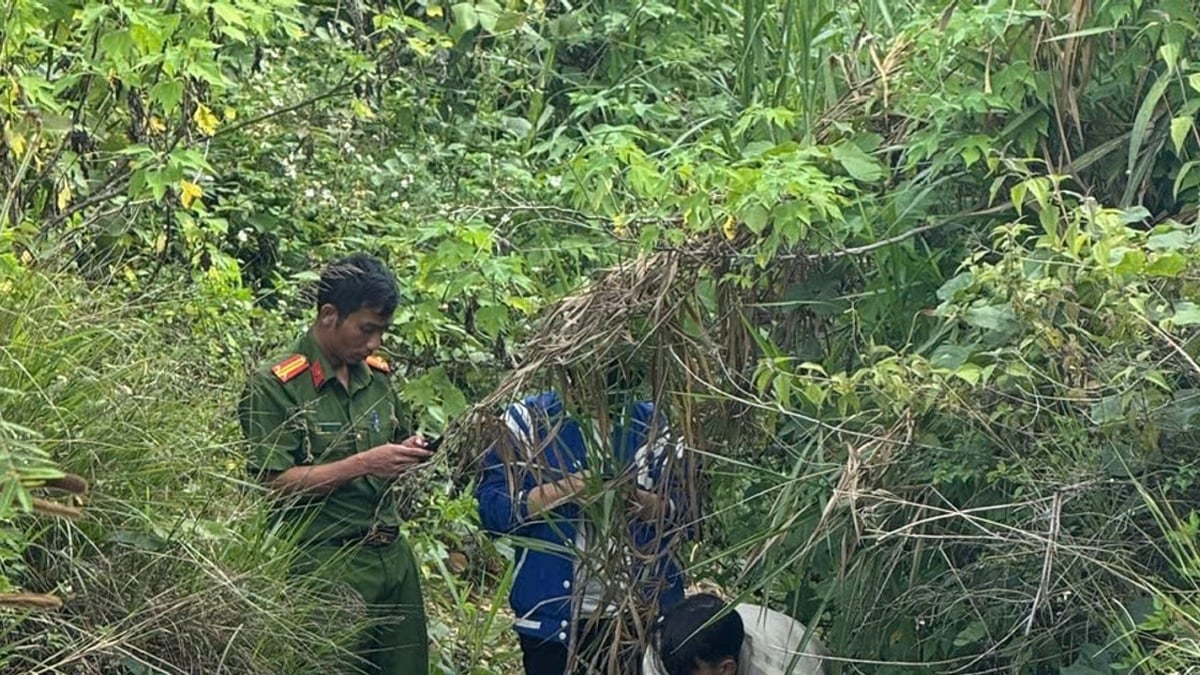

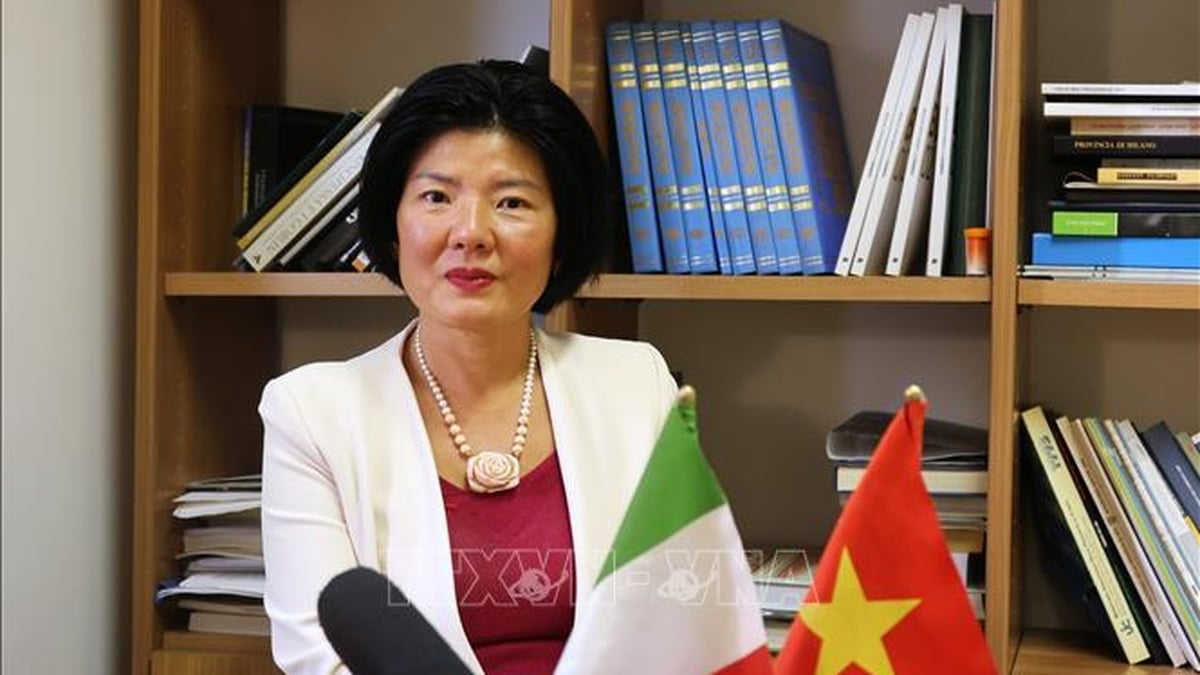













![[Photo] National Assembly Chairman attends the seminar "Building and operating an international financial center and recommendations for Vietnam"](https://vphoto.vietnam.vn/thumb/1200x675/vietnam/resource/IMAGE/2025/7/28/76393436936e457db31ec84433289f72)




































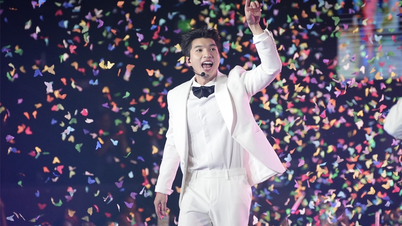





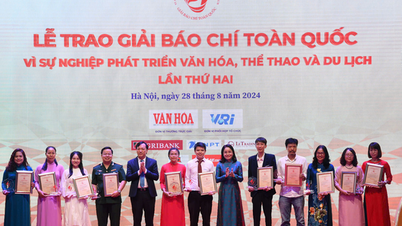

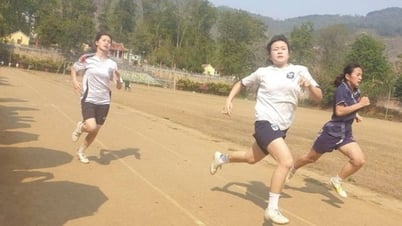




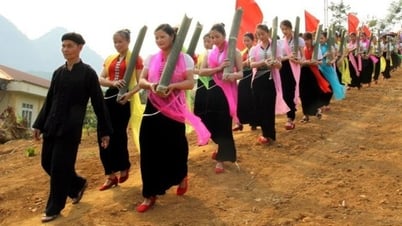





















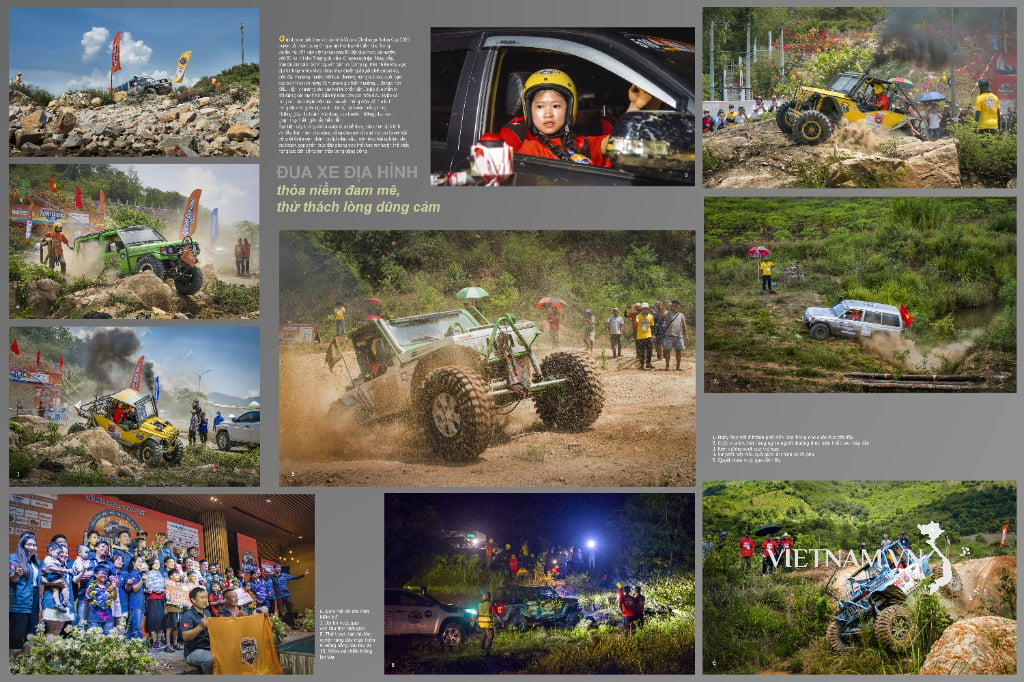



Comment (0)